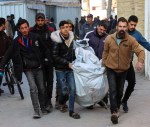You are here
Disquiet on the western front
Nov 13,2022 - Last updated at Nov 13,2022
PARIS — The timely release of a new film version of Erich Maria Remarque’s — All Quiet on the Western Front — offers a reminder of the close parallels between World War I and the current war between autocracies and democracies. The fighting now is in Ukraine, but, as in WWI, the broader war has several fronts: the energy front, the grain front, and, less well noticed, the Western front. Across Western capitals, autocrat-backed lobbyists, enablers, fellow-travellers, and “understanders” are trying to undermine the democratic world’s unity and weaken its resolve to maintain sanctions against Russia and arms deliveries to Ukraine.
The original German name of Remarque’s novel — — Im Westen nichts Neues — (“In the West Nothing New”) — is apt. There is nothing new about autocratic governments interfering in Western politics. The most notorious and best-documented episode is Russia’s interference in the 2016 US presidential election. But that was merely one of many examples. Similarly, Italy’s recent election brought to power a coalition that includes Lega, which has — advocated — a pro-Russian position for many years and allegedly — received — Russian government support.
While Russian President Vladimir Putin brazenly violates international law on the Ukrainian front, his lobbyists in Western capitals operate in covert ways that allow for plausible deniability. As I show in my recent book — “Spin Dictators”, co-authored with Daniel Treisman, this is how the majority of non-democratic regimes now function. Gone are the military uniforms of twentieth-century tyrants. Today’s autocrats wear staid business suits and pretend to be democrats, and that has been sufficient to grant them access to high-level meetings in Davos or at the G-20, where they actively recruit former Western politicians, lawyers, public-relations consultants and think tanks to make their case in the West.
It is a cunning strategy. If an autocrat’s malign influence operations are not discovered, he can continue to receive capital and technology from the West. But even if the Western public learns that corrupt autocrats’ money permeates their institutions, that merely helps the dictator’s narrative at home. “You think corruption is bad here,” he might say, “Just look at the West, where former politicians have all sold themselves to the highest bidder.” Such messaging is essential, because modern spin dictators base their legitimacy not on outright terror but on a carefully cultivated image of their own (relative) competence.
Another typical narrative goes something like this: “Yes, we interfere in Western elections, but they also interfere in ours.” This claim, too, happens to be at least partly true. The United States and Europe do support civil society and independent media around the world, and rightly so. But the big difference is that the West is proud of promoting democratic values and does so openly, whereas modern dictators interfere covertly, using illicit financial flows rather than grants from publicly registered NGOs.
This distinction underscores an important fact: whatever the weaknesses of Western democracies, they still command a degree of soft power that their autocratic competitors could only dream of. Democracy remains popular around the world, among citizens of both democratic and non-democratic countries. That is why modern dictators pretend to be democrats.
To be sure, there is no shortage of criticism about how the US and Europe function. But that itself is a product of the press freedom and political opposition that one can find only in democracies. But actions speak louder than words: Immigrants from around the world are eager to come to Europe or America, whereas few are trying to get into Russia or China.
The first step toward meeting the threat on the Western front is to acknowledge the problem. Until recently, Western politicians who supported and carried water for Putin paid no reputational cost whatsoever. And though most now feel obliged to say that they oppose the war, they continue to argue that sanctions should be removed. These politicians’ links to autocratic regimes should be investigated. If they are found to have broken the law, they should be punished; and if they are acting on autocrats’ behalf but operating in a grey area, they should be shamed, and new laws should be written to close off those channels of influence.
Second, the West should reduce its dependence on trade with autocracies. Fortunately, this has already begun with the push towards “friend-shoring”, a concept that is more economically sound than its critics allow, considering that the costs of war can easily outweigh the marginal gains from trade with autocracies.
Finally, the West should pay more attention to autocrats’ penetration of international organisations. One need not look far to see why this is a problem. Since 2021, Interpol has been run by an Emirati general who has been credibly accused of committing torture. And just this year, Hungary’s membership in the European Union significantly delayed the EU’s embargo on Russian oil, and Turkey’s membership in NATO threatened to derail membership bids by Finland and Sweden.
Modern autocrats are trying to use covert interference to protect themselves from sanctions. Democracies must stand up to them. Just because it is quiet does not mean there is not a war on.
Sergei Guriev, provost and professor of Economics at Sciences Po, is the co-author (with Daniel Treisman) of — “Spin Dictators: The Changing Face of Tyranny in the 21st Century” — (Princeton University Press, 2022). Copyright: Project Syndicate, 2022.












